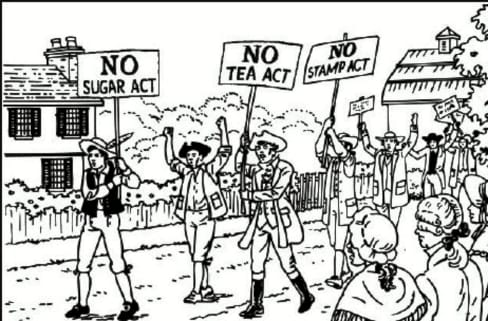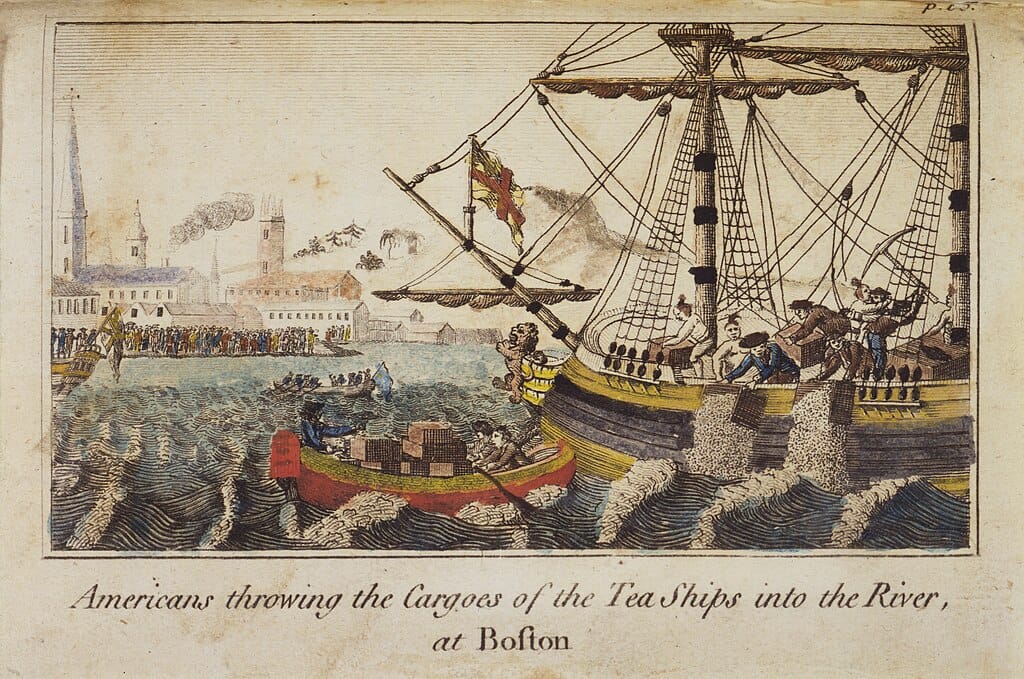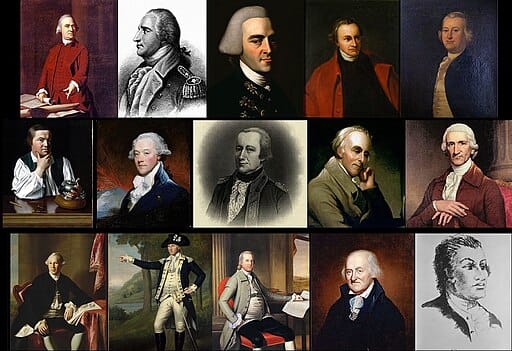Taxation Without Representation
“No taxation without representation!”
You must have heard this line. It wasn’t just a catchy slogan–it was the heartbeat of a revolution. A call raised by tired people and still resonates today.
But what did it mean? And why did it compel American colonists to throw 342 chests of tea into the sea–one of the most daring protest acts in history?
Let’s understand the real story behind this powerful phrase and what the colonists wanted when they raised their voice against the British crown.

Image by Chet B. Long via Wikimedia Commons, licensed under CC BY-SA 4.0. Original file
What did Taxation Without Representation Mean
In simple terms, it meant: being taxed by the government, without having a voice in that government.
In the 1760s and 1770s, the British Parliament imposed taxes on the American colonies–but there was a twist: the colonies had no representatives in Parliament.
Imagine that. You are being charged money but you cannot vote, cannot express your opinion, and have no say in government decisions. This is not just unfair—it is against democracy.
In a true democracy, taxes are not just demanded—they are debated. Every citizen has the right, through an elected representative, to decide how much tax should be levied and how that money should be used. When there is no voice, taxes are no longer just a burden but a symbol of injustice.
3 Main Reasons: Why Were the Colonists So Angry?
The anger did not come for nothing. For years, the American colonies managed their own affairs without much British interference. But everything changed after the French and Indian War (1754-1763).
Britain had to pay a lot of bills after the war and they thought the colonies should contribute.
Then Parliament started imposing taxes:
- The Stamp Act (1765) – taxes on every printed material.
- The Townshend Acts (1767) – taxes on everyday items like paper, paint and tea.
- And then came the Tea Act (1773) – which gave the British East India Company complete control over the sale of tea.
The colonists weren’t just upset about the money. What they were most upset about was that they thought it should be completely ignored.
They thought only their colonial legislatures had the right to tax them, not some far-off parliament.
What happened on Dec 16 1773
On December 16 1773, everything changed.
That night, colonials–some dressed as Mohawks–boarded a ship in Boston Harbor and dumped more than 90,000 pounds of British tea into the cold waters.
This was no small thing. This was a well-thought-out political statement.
The Boston Tea Party sent a loud and clear message: “We will not be taxed without a voice.”
People weren’t just angry about tea. They stood for a principle: Government must be accountable to the governed.
What Did the Colonists Hope to Achieve?
There were some important goals behind their bold action:
- Pressure Parliament to repeal unfair taxes
- Defend their right to self-governance
- Unite the colonies in resistance
- Gain public attention both at home and abroad
But their rebellion had another effect–the British government acted more harshly.
The colonists called these punishments “Intolerable Acts”. But the result was that they fueled the fire of revolution.
A Rallying Cry for a New Nation
“Taxation without representation” was not just a complaint–it became a rousing slogan of the American Revolution.
This slogan united farmers, merchants, blacksmiths–everyone for the same purpose.
People began to understand that freedom meant not only freedom but also justice and a voice.
These became some of the founding principles:
- That government exists by the consent of the governed
- That people have the right to choose their leaders
- And that taxation must come with a voice
Taxation Without Representation Today
You might think this was all over in 1776.
But this principle is still relevant today. See how:
- Residents of Washington, D.C. pay federal taxes, yet lack full voting representation in Congress.
- Certain U.S. territories, like Puerto Rico, are in similar situations.
- Even non-citizen residents contribute to the economy and pay taxes–but don’t have voting rights in national elections.
All of this tells us that democracy demands not just participation but representation.
Why “No Taxation Without Representation” Is More Than a Slogan?
- It’s a short line, but its meaning is deep.
- It’s not about taxes – it’s about respect and a voice of authority.
- When people are taxed for no reason, they get angry.
The Boston demands were not because they didn’t like the price–but because their voices weren’t being heard. And this idea – that every person should have a say in government – is the foundation of democracy.
Final Thoughts: A Message for Every Generation
The Boston Tea Party wasn’t just a matter of demands. It was a bold move. It was a moment when ordinary people stood up and said: “Enough is enough, no more.” “Taxation without representation” was a cry – not against Britain, but for this idea: that power is only right when it is accountable to the people.
All of this is so relevant today. Whether it’s in the halls of Congress or at a protest in a city, demanding a voice is a timeless thing to do. Because without a voice, there is no freedom. And without representation, there is no justice.
“They who can give up essential liberty to obtain a little temporary safety deserve neither liberty nor safety.“
— Benjamin Franklin


